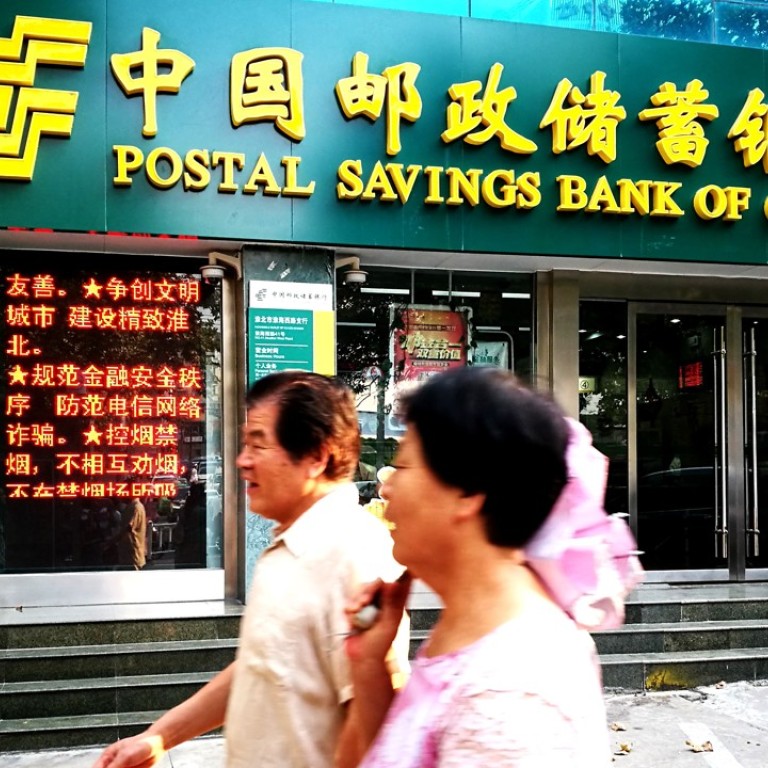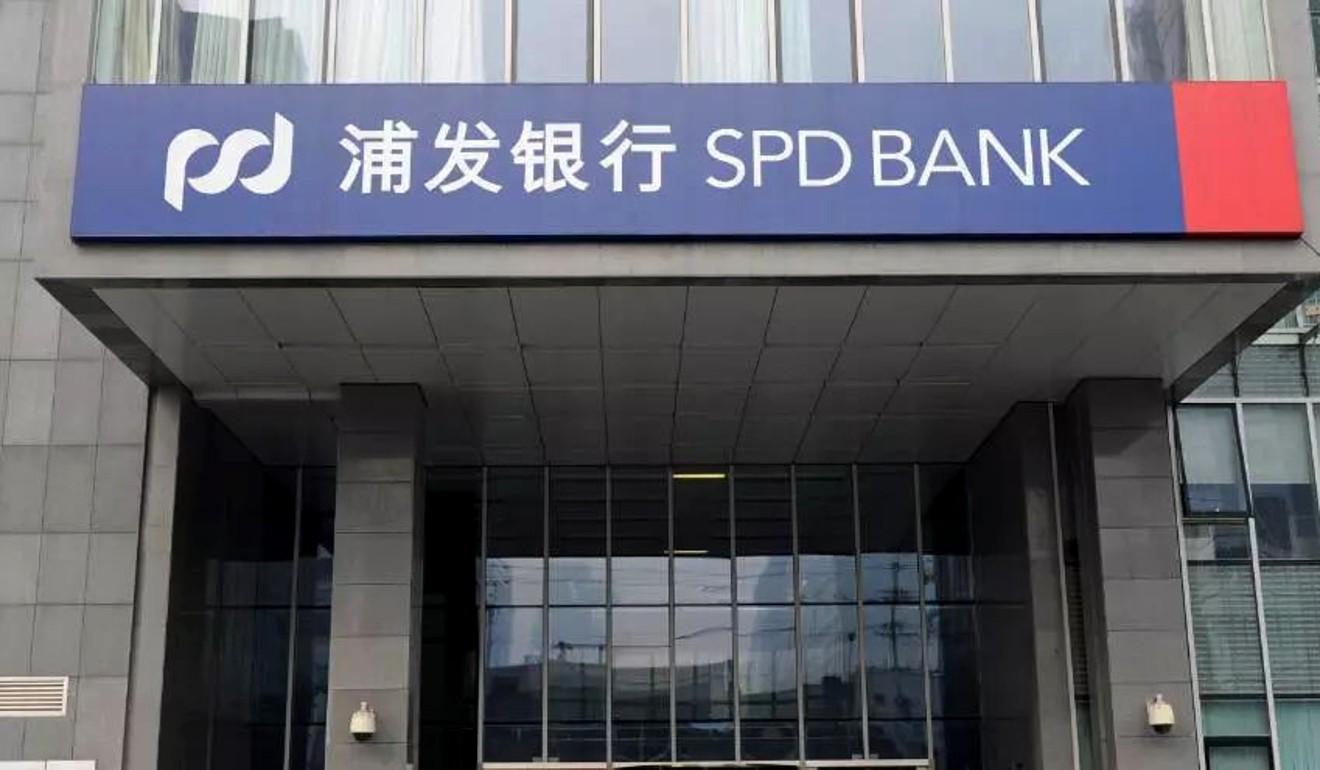
US$125.5 million in fines in January suggest China will continue crackdown on financial risk in 2018
January fines amount to about three times the penalties for whole of 2016
The days of Chinese banks circumventing redlines for a quick profit are coming to an end, as the mainland’s top banking regulator hands out big fines to lenders over irregularities.
In January itself, the China Banking Regulatory Commission has handed out fines worth about three times the combined penalties for the whole of 2016 – and a quarter of those issued in 2017.
The commission has issued at least three big penalties amounting to 791 million yuan (US$125.57 million) in January, and shows no signs of slowing down.
“To banks, these penalties are like a vaccination shot,” said Zhang Xingrong, the managing director of BOC Institute of International Finance. “It could hurt as a one-off, but it does good to the health in the long term, to ward off severe or even fatal diseases.
“For the strong ones, they might not react to the vaccination. But for the weak ones, they could suffer a fever, sweat a lot and go through the process,” he said.
The commission has made it clear it will not tolerate any misconduct and will make an effort to clean up systemic financial risk across sectors, said Zhang.
In the past, the regulator has dealt with irregularities in bank bills trading, wealth management, interbank financing and shareholder activities.

Guo Shuqing, chairman of the commission, said in January that warding off financial risk and cracking down on wrongdoing were high on the regulator’s agenda in 2018, which suggests that a high-profile battle against financial risk initiated in 2017 will be continued this year.
The tighter scrutiny of banks is part of broad war against misconduct in financial institutions, with a similar clean up targeting the securities and insurance sectors as well.
President Xi Jinping has made tackling financial risk one of the top three priorities for the next few years, along with environmental management and poverty alleviation.
The last big penalty to be issued was to the Hong Kong-listed Postal Savings Bank of China. On January 27, the Beijing-based bank, the country’s largest lender in terms of network, was hit with a 90.5 million yuan fine for illegal bank notes transactions worth 7.9 billion yuan, its second big fine in as many months. The bank and 11 other lenders involved in the scam were fined a combined 295 million yuan.
A bank bill, also known as a note, is issued by a bank promising to pay a specific sum to the bearer on demand. The bearer may cash the bill with another bank but at a discount. Notes can be traded on the interbank market as well as in the grey market.
A week earlier, the mid-sized Shanghai Pudong Development Bank was handed a fine of 462 million yuan for a loans fraud amounting to 77.5 billion yuan. The Shanghai-listed lender illegally extended the 77.5 billion yuan as credit to 1,493 shell companies for businesses to cover their non-performing assets.

Officials at the Chengdu branch of the commission were also penalised for not being vigilant enough. It was the second time in a month that officials at the commission were fined for failing to do their duty.
On January 12, the commission came down heavily on the Heilongjiang branch of the Industrial and Commercial Bank of China, the country’s largest bank by assets, and fined it 34 million yuan for irregularities in its wealth management business even though there were no financial losses. Officials at the Heilongjiang bureau of the commission were also punished.
“We have no idea how many cases are in the pipeline, but we will see such fines and penalties more frequently, not only for banks but also to the regulatory side, as staff might not have acted effectively to avoid these breaches,” said Ray Heung, a banking analyst at rating agency Moody’s.
These three cases have contributed to the 791 million yuan in fines.
These penalties are like a vaccination shot. It could hurt as a one-off, but it does good to the health in the long term, to ward off severe or even fatal diseases
Last year, the commission issued fines worth a total of 2.9 billion yuan to 1,877 banking institutions. Among them, China Guangfa Bank got the severest penalty, of 722 million yuan, for issuing fraudulent guarantees for loans and seeking to cover up the scale of its bad debts. In 2016, the total fines amounted to more than 270 million yuan, as reported by mainland media.
Yulia Wan, another Moody’s analyst, said the commission’s fines signalled China’s increasingly stringent supervision. “This helps prevent the risk of future breaches and non-compliance for banks, but will add to compliance costs,” she said.
The commission said in January that the banking industry had shown early signs of improvement after a year of clean-up efforts, by shifting from rapid growth to high-quality development, and by lending more towards real economic activities. The banks lent 12.6 per cent more new loans, but grew their assets at a slower pace of 8.7 per cent last year, according to data from the commission.
Raymond Yeung, the chief economist at ANZ, said tight scrutiny will roll on for two to three years as Beijing fights financial wrongdoing, with all the country’s financial watchdogs working together to insure financial stability.
“It’s transparent by fining the wrongdoers, and made it public,” said Yeung. “It also follows international practices.”

